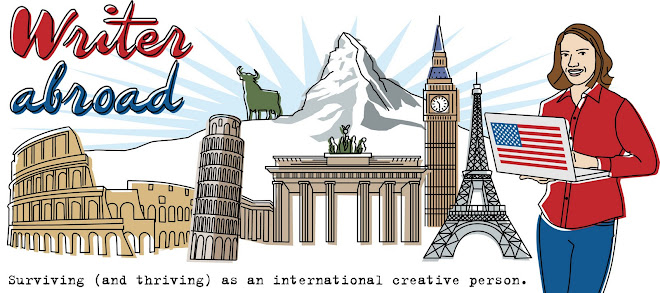As Writer Abroad puts
the finishing touches on her Swiss essay book in order to send it to her editor
in the best possible condition on Monday, she’s been referring to other essay
collections regarding structure and organization. Here are some of her favorites:
I Feel Bad About My Neck by Nora Ephron. If there’s a better essay collection on women’s issues,
Writer Abroad doesn’t know what it is. Unfortunately, another book of hers, I Remember Nothing, which Writer Abroad also bought, doesn’t live up to the Neck
collection. Maybe the author got too big of head when writing it? She name-dropped
in it so much that Writer Abroad couldn’t even finish reading it.
Hypocrite in a Pouffy White Dress by Susan Jane Gilman. Wonderful coming of age best-selling essay
collection whose final chapter is a bonus—at least to those of us in Switzerland—since
it takes us to Geneva.
I Was Told There’d Be Cake by Sloane Crosley. If you like a life served up funny and self-deprecating,
then this essay collection about being a young person in New York City is for
you.
Me Talk Pretty One Day by David Sedaris. Learning French is fun when you’re in class with Sedaris. While
you might not learn to conjugate the past, you’ll learn what’s so funny about the
present.
Tales from the Expat Harem edited by Anastasia M. Ashman and Jennifer Eaton Gökmen. If you often
feel stuck between two worlds, then this book will introduce you to 32 foreign
women living in Turkey who are trying to find themselves somewhere between East
and West.

